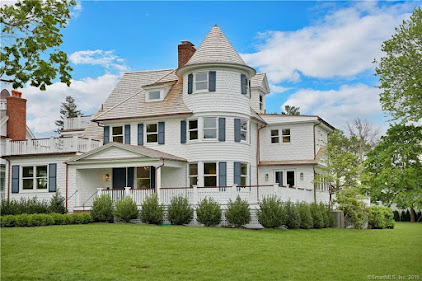On today’s Friday, November 4, 2022 show, you are reminded that Election Day is here!
Be sure to go out and exercise your precious right to vote on Tuesday, November 8.
Speaking of elections, I’ll share an amusing poem (see above) that was published in the Greenwich News & Graphic a century ago.
Also, Judge Frederick August Hubbard, also known as Ezekiel Lemondale, wrote in 1930 about then-modern methods of voting as compared to previous ones, about the secret ballot of 1864, a novel voting machine that resembled a coffin set on end, and the unfair handling of voters.
At the height of America’s Gilded Age, some of America’s wealthy families came Belle Haven here in Greenwich. It was celebrated as one of the first and most spectacular residence parks in the nation. Thanks to Matt Bernard’s incredible compilation of Belle Haven’s rich history, Victorian Summer: The Historic Houses of Belle Haven Park, Greenwich, Connecticut, you’ll hear about Kent Cottage, principally owned by Jennie Kent, and constructed in 1889.
On Greenwich Before 2000, we’ll go back to the year 1939.
We have over 63 cemeteries and burying grounds dotting the town’s landscape. I’ll share some history about the oldest existing one, Tomac Cemetery in Old Greenwich.
I'll have more about Discover Greenwich Creating a Sense of Place, celebrating the 90th year anniversary of the Greenwich Historical Society.
You'll hear news of exhibits, activities and events for the public.
You’ve come to the right place to learn about the history of the Town of Greenwich, Connecticut, one of America's most interesting and extraordinary communities.
We’ll have all this -and more- as history continues to unfold.





No comments:
Post a Comment